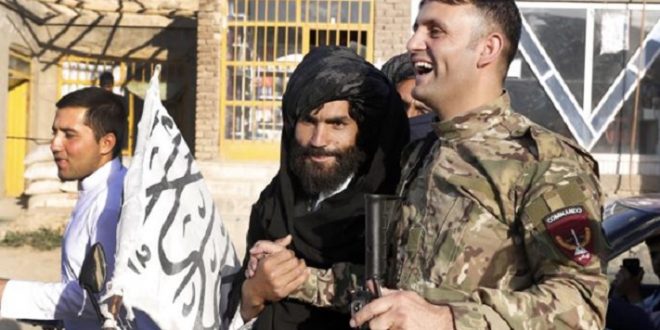By Wali Muhammad Alizai
Peace is a grave desire in a conflict-ridden Afghanistan after four-decades-long ruinous war. It now seems that the U.S.-Taliban peace talks would pave path for the prevalence of everlasting peace in the country, which will ensure stability, development, education and protection of women rights in the country. After the prevalence of everlasting peace, Afghanistan, once notorious safe-heaven for international terrorists, will fame for economic activities and regional connectivity, but Taliban are the principal hindrance in achieving this sacred goal.
Ironically, Taliban are carrying on peace negotiations with U.S. and ready for ceasefire with U.S. troops in Afghanistan, but are reluctant to sit with the Afghan government, which is main party to the conflict.
In the U.S.-Taliban negotiations, Taliban should be convinced that peace can not be imposed on the country from outside. For in order to reach a viable peace-agreement, Taliban ought to negotiate directly with the Afghan State to discover their own route to solution.
En route to effective solution, the first and essential step is to put an end to violence, hostility and bitterness. Once it is ensured, it should be succeeded by calls for comprehensive ceasefire in the country. Taliban’s proposed “reduction in violence” is not a sustainable end for the grievances of the Afghan nation. Since unstable Afghanistan satisfies the interest of few regional actors, all this should hurriedly be worked on as any plotted incident can sabotage the peace process & can intensify violence at any moment. Taliban, therefore, should be rational, as well as cautious.
In due course the ceasefire will resultantly build trust between the Afghan nation and Afghan state, and the Taliban. As the latter are widely considered proxies of neighboring countries and hostile to women rights, education and progress in Afghan society. The ordinary Taliban fighters consider the elected Afghan government as client regime of U.S., which is threat to Islamic practices.
Non-violent coexistence will help skeptical sides to diminish their suspicions and to build confidence on each other that neither side will turn hostile violently against the other.
Meanwhile, Non-violent coexistence and trust-building would lead Afghan society and the Taliban toward empathy. Both sides would understand each other’s emotions, sufferings and states of minds.
To announce ceasefire, Taliban ought to be free from neighboring countries’ influence alongside top-Taliban leadership having firm command on their foot soldiers on the battle ground. Neighboring countries’ influence on Taliban’s decisions is diminishing their already downscale support among Afghans gradually. They should avail this opportunity of peace-talks to persist their existence in Afghan society; Otherwise, their patrons are getting engulfed in troubles by international community and they will ultimately lose their patronage.
 Afghanistan Times
Afghanistan Times




